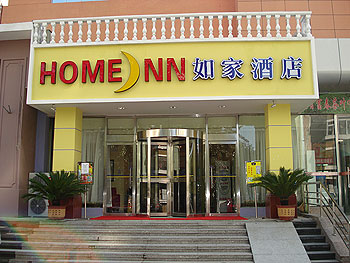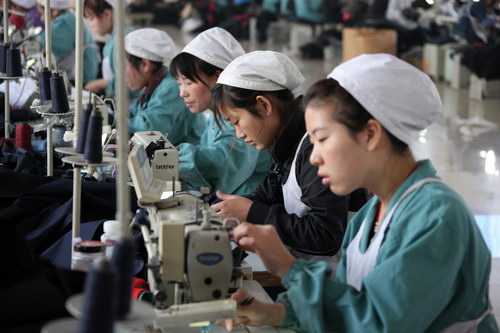BizChina
- Details
- By David Cao
- Hits: 1462

Two more Carrefour stores were found to have overcharged customers, after 11 of the French retailer's stores in China were fined 500,000 yuan ($76,000) each in a government campaign to crack down on price manipulation during the Spring Festival holiday.
Guangzhou-based New Express Daily reported on Sunday that during a Spring Festival inspection, the Guangzhou price bureau found that Carrefour's Xinshi and Tianheyuancun stores were selling goods for more than the tag prices.
"An investigation is under way but the illegal pricing practices have been confirmed," Wu Linbo, deputy director of the Guangzhou price bureau, was quoted by the newspaper as saying. According to the newspaper, the local government will soon publicize the penalty it decides upon.
The National Development and Reform Commission (NDRC) announced on Jan 26 that 11 Carrefour stores and three Wal-Mart stores were found to be overcharging customers and urged local authorities to act.
Read more: More Carrefour stores caught price-cheating in China
- Details
- By David Cao
- Hits: 1609

Holiday Inn Express is upgrading its image by announcing its new Chinese name to further boost its presence and competitiveness in the country's mid-scale market as the territory of economy hotels is mostly dominated by domestic brands.
With its English name unchanged, the hotel chain's new Chinese name - Zhi Xuan Jia Ri, which translates to English as "Smart Choice" - takes out the Chinese words Kuai Jie, which means "Express", in a move to differentiate the brand from the low-budget hotels in the country.
"The name of Kuai Jie or 'Express' has been adopted as a category by many economy hotels," said Nick Barton, vice-president of sales and marketing of InterContinental Hotels Group PLC (IHG) in China, on what motivated the name change in mid-January. "Our new brand is a more accurate reflection of the fact that we compete with local four- or five-star hotels, or the mid-scale hotel market."
With 29 facilities in operation and nearly 30 in the pipeline, Holiday Inn Express' room rates generally range from 400 yuan ($61) to 500 yuan - a price considered to be within the mid-scale market.
- Details
- By David Cao
- Hits: 1592
China's tourism authorities announced on Tuesday that tourism boomed in the country during the seven-day Lunar New Year holiday with over 70 percent of trips made within the Chinese mainland.
"According to data from bureaus of major domestic tourist destinations, during the first five days people made scores of times more trips than before," said an official with the National Holiday Tourism Office.
For example, on the first day of the lunar year, which fell on February 3, Shanghai Century Park received 13,500 visitors, which is about 30 times that of the first day of the holiday last year.
Meanwhile, outbound trips increased sharply. A total of 67,500 people left Beijing for overseas trips during the holiday, which is an increase of 59.6 percent from the same period last year.
From February 2 to 9, 350 flights departed from China and arrived in Thailand, 130 of which were chartered flights to Phuket Island, Samet Island and Samui Island.
- Details
- By David Cao
- Hits: 1201

Private Chinese enterprises exported goods worth $481.3 billion in 2010, a jump of 223 percent compared with 2005, said a report by the All-China Federation of Industry & Commerce (ACFIC).
The year-on-year increase on average has been 26 percent over the past five years, the association, which governs the nation's more than 40 million private and individual businesses, was quoted by Xinhua News Agency as saying on Tuesday.
"China's private sector has become a major player in foreign-trade market. Since the global financial crisis, those enterprises have taken full advantage of the country's stimulus policies and made much headway in tapping the international market," said the ACFIC in the report.
Overseas investment by China's private enterprises is no longer limited to economically underdeveloped regions, such as Africa and Latin America, but has been extended to many other, more mature markets, such as North America, Europe, Japan and South Korea, the ACFIC report said.
- Details
- By Russell Flannery
- Hits: 1385
The chairman of one of China’s largest financial information companies has formally become the country’s newest billionaire after a successful listing at the Shanghai Stock Exchange today.
Shares in Shanghai Great Wisdom closed at 25.38 yuan, or about $3.85, up from their IPO price of 23.20 yuan. Chairman Zhang Changhong’s 386 million shares in the company were worth 9.8 billion yuan, or approximately $1.5 billion, at the day’s close.
Buoyed by a strong economy, China has emerged as one of the world’s fastest-growing countries for new billionaires in recent years. It had 128 of them on Forbes Asia’s China Rich List published last October, the second-largest group in the world after the United States.
Shanghai Great Wisdom provides financial statistics and analysis to about 10 million users daily though PC terminals plus another two million via mobile phone, according to a report by brokerage SWS.
Read more: Financial Information Company’s Listing Creates China’s Newest Billionaire
More Articles …
Page 38 of 120